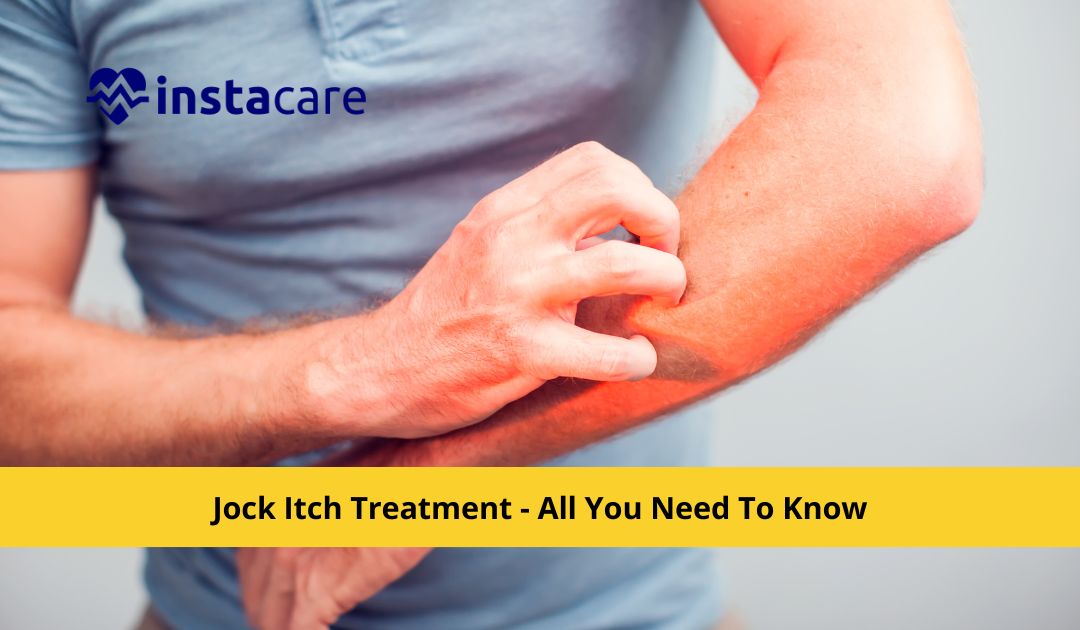Jock itch is a common fungal infection that affects the skin around the groin, inner thighs, and buttocks. It causes an itchy, red, scaly rash that may have bumps or blisters along the edges. Jock itch is also known as tinea cruris or ringworm of the groin.
Jock itch is more common in men than women, especially in adolescent and young adult males. It can be spread by direct skin contact with an infected person or by sharing towels, clothing, or personal items. Jock itch can also be caused by wearing tight or sweaty clothing that traps moisture and heat in the groin area.
Jock itch is usually not a serious condition, but it can be
very uncomfortable and interfere with your daily activities. Fortunately, there
are effective treatments available to get rid of jock itch and prevent it from
coming back. Here are some things you need to know about jock itch treatment:
How To Diagnose Jock Itch
Jock itch can usually be diagnosed by looking at the rash
and asking about your symptoms and risk factors. Your doctor may also take a
skin scraping from the affected area and examine it under a microscope or send
it to a lab for testing. This can help confirm the diagnosis and rule out other
possible causes of your rash, such as bacterial infections, eczema, or
psoriasis.
How To Treat Jock Itch
The main treatment for jock itch is an antifungal medication. Antifungal medications kill the fungus that causes jock itch and help heal the skin. There are different types of antifungal medications available, such as:
1- Creams, Ointments, Or Gels
Creams, ointments, or gels that you apply directly to the rash. These are available over-the-counter (OTC) or by prescription. Some common OTC antifungal products include clotrimazole, miconazole, tolnaftate, or terbinafine. You should follow the instructions on the label and apply the medication for at least a week after the rash clears up.
2- Sprays Or Powders
Sprays or powders that you spray or sprinkle on the rash. These are also available OTC or by prescription. They can help keep the area dry and prevent the fungus from growing. Some examples are miconazole spray or powder, tolnaftate spray or powder, or terbinafine spray. You should use these products as directed and continue using them for a few days after the rash goes away.
3- Pills
Pills that you take by mouth. These are only available by
prescription and are usually reserved for severe cases of jock itch or when
topical treatments do not work. Some prescription antifungal pills include
fluconazole, itraconazole or terbinafine . You should take these pills as
prescribed by your doctor and complete the full course of treatment.
Steps To Relieve Your Symptoms
In addition to antifungal medication, you may also need to
take some steps to relieve your symptoms and prevent further irritation of your
skin, such as:
- Washing the affected area with mild soap and water once or
twice a day and drying it thoroughly.
- Avoid scratching or rubbing the rash, as this can worsen it
and increase the risk of infection.
- Wearing loose-fitting, breathable clothing made of cotton or
other natural fibers that allow air circulation and reduce sweating.
- Changing your underwear daily and washing it in hot water
with bleach to kill any fungus.
- Avoid sharing towels, clothing, or personal items with
others who may have jock itch or other fungal infections.
- Treat any other fungal infections you may have, such as
athlete's foot, at the same time as jock itch to prevent cross-contamination.
How To Prevent Jock Itch
The best way to prevent jock itch is to keep your groin area
clean and dry and avoid exposure to fungi that cause it. Some tips for
preventing jock itch include:
- Showering or bathing regularly and drying your groin area
well after each wash.
- Use talcum powder or cornstarch on your groin area to absorb
moisture and reduce friction.
- Wearing underwear that fits well and is made of cotton or
other natural fibers that wick away sweat.
- Changing your underwear after exercising or sweating
heavily.
- Avoid tight-fitting pants, jeans, or shorts that trap heat
and moisture in your groin area.
- Avoid wearing wet swimsuits or athletic gear for long periods.
- Washing your workout clothes after each use in hot water
with bleach to kill any fungus.
- Avoid contact with people who have jock itch or other fungal
infections.
- Keeping your immune system strong by eating a balanced diet,
getting enough sleep, managing stress, and avoiding smoking.
Finally
Jock itch is a common and treatable condition that can affect anyone, especially men. By following the proper treatment and prevention measures, you can get rid of jock itch and keep it from coming back. If you have any questions or concerns about jock itch, talk to your doctor or pharmacist for more information and advice.


